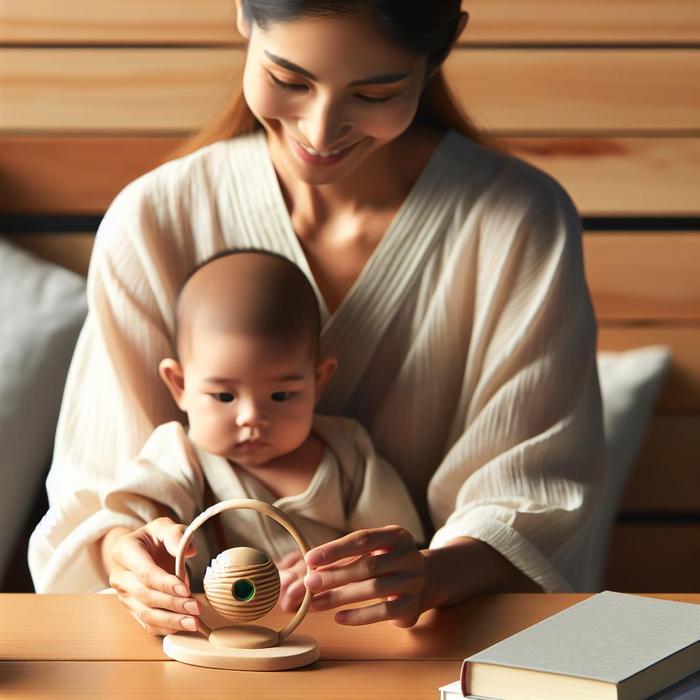Embrace Minimalism in Parenting
Most people associate minimalism with decluttering spaces and minimalist design. But the concept reaches far beyond just physical possessions. It’s a mindset that can help simplify all aspects of our lives, including parenting. Embracing minimalist parenting can be a breath of fresh air in the complex world of raising children and can make nurturing your child a more enjoyable experience.
What is Minimalist Parenting?
Minimalist parenting isn’t about depriving your child of their needs or desires. Instead, it is about focusing on what truly matters and eliminating the unnecessary. It’s about teaching your child the value of experiences over material possessions, and quality over quantity.
It’s an approach that can bring a sense of peace and clarity to both parents and children. It can help reduce stress levels, improve engagement, and promote a healthier lifestyle.
Benefits of Minimalist Parenting
So, why should you consider minimalist parenting? It offers several benefits:
- Simplifies life: By reducing clutter – both physical and mental – minimalist parenting can help make your family life less complicated and more manageable.
- Encourages creativity: Fewer toys mean more creativity. Children learn to use their imaginations and find innovative ways to entertain themselves.
- Teaches valuable life lessons: Through minimalist parenting, children learn lessons about the importance of prioritizing, the value of experiences, and the joy of simplicity.
- Enhances quality time: With less time spent cleaning up and organizing, families can focus more on quality time and meaningful activities.
Start with Baby Steps
Transitioning to a minimalist lifestyle doesn’t have to be overwhelming. You can take baby steps and gradually make changes. Here are some simple parenting tips to get started:
Cultivate a Mindset of Less is More
First, try to adopt a “less is more” mindset. Instead of drowning in toys, allow your children to have only a few cherished ones. This can help them appreciate what they have. Kimberly of ChiBeingChi shares insights into how having fewer toys can enhance a child’s ability to play creatively.
Develop Strong Bonding Activities
Next, focus on activities that develop stronger bonds. For instance, some moms have found yoga with their babies to be a great minimalist activity that combines fitness with quality bonding time.
Keep Birthdays Simple and Memorable
Parties can easily be simplified without losing any of their fun. Consider planning your baby’s first birthday around experiences rather than gifts. Memory-making activities create lasting impressions and teach children the value of experiences.
Choose Quality Over Quantity
When it comes to purchasing items for your baby, opt for quality over quantity. A great example is choosing a high-quality, reliable baby swing over numerous lesser quality toys. Our guide on finding the best baby swings can help you make an informed choice.
Parenting can be complicated, but it doesn’t have to be. By adopting a minimalist mindset, we can focus on what truly matters and raise our children in a simpler, more mindful manner. Remember, minimalism is not about having less; it’s about making room for more: more creativity, more quality time, and more meaningful experiences.
Continue your journey towards minimalist parenting
Ready to dive deeper into minimalist parenting? Check out Jennifer of Simply Fiercely’s personal journey. Discover her ethos of ‘less stuff, less stress and more freedom’ and how it transformed her parenting approach.
Talk to Your Partner
Remember, parenting is a journey you embark on with your partner. Discussing your new approach and making sure both of you are on the same page is vital. Mutual understanding can help simplify your shift towards minimalist parenting.
Set Your Own Rules
Minimalist parenting, like any parenting approach, should be tailored to your family’s needs. For instance, while one family might opt for an almost toy-free environment, another may choose a limited number of educational toys. It’s all about what works best for your family.
Although minimalist parenting has numerous benefits, it also comes with its share of challenges. Facing them head-on can make your journey much smoother.
Consumer Culture
With aggressive marketing techniques urging us to keep buying, it’s not easy to stay committed to a minimalist lifestyle. Consider turning consumer culture into a learning opportunity, teaching your children about the difference between wants and needs.
Family and Friends
Dealing with relatives and friends who have different parenting styles can be tricky. Communicate your goals and preferences, ensuring they’re taken into account when gifts are being considered.
Social Pressure
Social pressure to have more toys, perform more activities, or throw bigger parties can be daunting. However, molding your parenting style based on social expectations contradicts the very ethos of minimalist parenting. Your goal is to prioritize your family’s peace and happiness over social approval.
Creating a Minimalist Home with Children
Embracing minimalism in your home is one of the biggest steps toward minimalist parenting. Here are a few ways you can create a minimalist home environment:
- Declutter: Start with decluttering your children’s room. Simplify by keeping only the essentials and a few favorite items.
- Encourage responsibility: Make your children part of the decluttering process. It can be an excellent lesson in responsibility and the value of possessions.
- Create functional spaces: Every item and area in your home should serve a purpose. Create spaces that encourage creativity and imagination instead of filling them with toys.
- Choose minimal decor: Opt for a clean, simple, and aesthetic décor that soothes the mind rather than overwhelms it.
Minimalism in Homeschooling
Believe it or not, minimalism can also play a significant role in homeschooling. Minimalist homeschooling focuses on core skills and subjects, eliminating unnecessary redundancies and distractions. The goal here is not to minimize learning opportunities but to create a solid foundation that enhances understanding and promotes in-depth learning.
Adopting Minimalism in Children’s Playtime
Minimalism can deeply enrich your child’s playtime. Minimalist play encourages children to think creatively and be more imaginative. Instead of losing themselves in piles of toys, they learn to find joy in the simple things.

